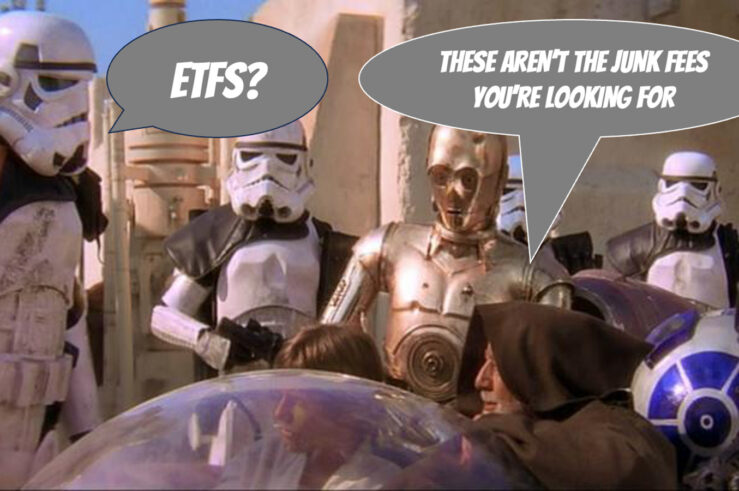Showing archive for: “Consumer Protection”
Antitrust at the Agencies: PBM Madness at the FTC, Part 2
As I noted in my last post, the Federal Trade Commission (FTC) announced Sept. 20 that it had filed a complaint: against the three largest prescription drug benefit managers (PBMs)—Caremark Rx, Express Scripts (ESI), and OptumRx—and their affiliated group purchasing organizations (GPOs) for engaging in anticompetitive and unfair rebating practices that have artificially inflated the ... Antitrust at the Agencies: PBM Madness at the FTC, Part 2
FTC Sues ‘Big 3’ Pharmaceutical Benefit Managers
My last post highlighted a July 2024 Federal Trade Commission (FTC) interim staff report that was critical of pharmaceutical benefit managers (PBMs)—so-called “middlemen” firms that specialize in negotiating with drugmakers for rebates on the list prices of drugs. I explained that the interim report’s analysis is at odds with economic research that delineates the substantial economic benefits ... FTC Sues ‘Big 3’ Pharmaceutical Benefit Managers
Antitrust at the Agencies: PBM Madness at the FTC, Part 1
“Curiouser and curiouser!” Cried Alice (she was so much surprised, that for the moment she quite forgot how to speak good English). — Lewis Carroll, Alice’s Adventures in Wonderland Let’s start more modestly, if less cleverly, with “curious.” The Federal Trade Commission (FTC) announced Sept. 20 that it had filed a complaint: against the three ... Antitrust at the Agencies: PBM Madness at the FTC, Part 1
The FTC Takes On Pharmaceutical Benefit Managers
The Federal Trade Commission (FTC) announced Sept. 20 that it was suing the three largest pharmaceutical benefit managers (PBMs)—Caremark Rx, Express Scripts (ESI), and Optum—alleging competition and consumer-protection law violations. This commentary provides information on controversies surrounding the economic effects of PBMs that led up to the suit. A follow-up commentary will assess the lawsuit ... The FTC Takes On Pharmaceutical Benefit Managers
After Loper Bright, FTC Awaits Its Turn At-Bat
In an Agencies Roundup post several weeks ago, I revisited the Federal Trade Commission’s (FTC) newly adopted—and not-yet-effective—rule barring the use of noncompete agreements across much of the U.S. economy. It was not my first such post (my ninth, if I’ve counted correctly, and if readers will forgo armchair diagnoses of monomania). The last time ... After Loper Bright, FTC Awaits Its Turn At-Bat
The Waiting Game: Noncompetes, Google, Roll-Ups, and More
I’ll start with a bit of half-empty, half-full (and very partial) resolution in Federal Trade Commission (FTC) publicity. Losing by Winning or Just Losing or . . . ? A couple of weeks ago, the Wall Street Journal editorial board announced that: “Another Lina Khan Theory Loses in Court” And that was right, up to ... The Waiting Game: Noncompetes, Google, Roll-Ups, and More
Blackout Rebates: Tipping the Scales at the FCC
Cable and satellite programming blackouts often generate significant headlines. While the share of the population affected by blackouts may be small—bordering on minuscule—most consumers don’t like the idea of programming blackouts and balk at the idea of paying for TV programming they can’t access. Enter the Federal Communications Commission (FCC) with a bold proposal to ... Blackout Rebates: Tipping the Scales at the FCC
The CFPB’s Misleading Slant on Competition in Credit-Card Markets
In yet another example of interagency cheerleading from the Federal Trade Commission (FTC), Chair Lina Khan recently touted the work of the Consumer Financial Protection Bureau (CFPB) on payments networks: New @CFPB research reveals that large banks are offering worse credit card terms & interest rates than small banks and credit unions, regardless of credit ... The CFPB’s Misleading Slant on Competition in Credit-Card Markets
Are Early-Termination Fees ‘Junk’ Fees?
Cable and satellite companies often get a bad rap for early termination fees (ETFs). Consumer advocates portray them as “junk fees” or billing traps meant to cheat customers. And the Federal Communications Commission (FCC) appears to accept these allegations at face value, characterizing ETFs as “junk fee billing practices … that penalize subscribers for terminating ... Are Early-Termination Fees ‘Junk’ Fees?
Four Problems with the Supreme Court’s Refusal To Hear the Epic v Apple Dispute
The U.S. Supreme Court this week rejected both parties’ petitions for certiorari in appeals of the 9th U.S. Circuit Court of Appeals’ Epic Games v Apple decision. Many observers—including Epic CEO Tim Sweeney—have marked this as an unmitigated loss for Epic. That’s partly right. The district court had correctly rejected Epic’s federal antitrust claims against ... Four Problems with the Supreme Court’s Refusal To Hear the Epic v Apple Dispute
A Consumer-Welfare-Centric Reform Agenda for the Federal Trade Commission
As we approach a presidential election year, it is time to begin developing a comprehensive reform agenda for the Federal Trade Commission (FTC). In that spirit, this post proposes 12 reforms that could be implemented by new leadership, either through unilateral action by a new chair or (in some cases) majority votes of the commission. ... A Consumer-Welfare-Centric Reform Agenda for the Federal Trade Commission
Where Are the New FTC Rules?
Perhaps more than at any time in its history, the Federal Trade Commission (FTC) under Chair Lina Khan has highlighted substantive rulemaking as a central element of its policy agenda. But despite a great deal of rule-related sound and fury (signifying nothing?), new final rules have yet to emerge, and do not appear imminent. This ... Where Are the New FTC Rules?
















